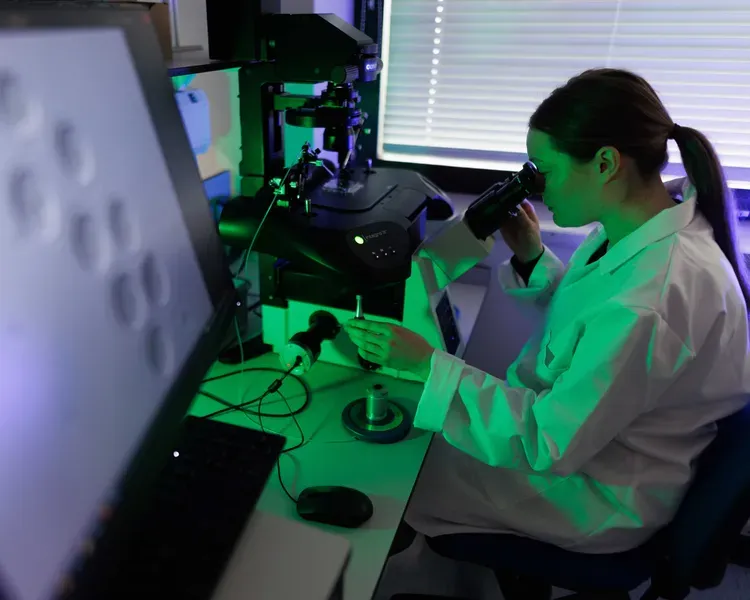Human Clinical Embryology & Assisted Conception MSc
Gain knowledge and experience in clinical embryology, andrology, and assisted conception. Also develop your skills in laboratory work and research

Human clinical embryology studies human fertilisation and the development of embryos. It focuses on assisted reproductive technology (ART) to help people with infertility conceive.
Infertility is a global problem. Around 80 million people worldwide have been diagnosed as infertile. Demand for ART is increasing, and opportunities for careers in this field are growing.
This master's course gives you a robust education in embryology, andrology, and ART. It looks at all this from a clinical, research, and laboratory perspective. The emphasis is on humans, and the course offers practical lab experience.
You'll get access to clinics in a real Assisted Conception Unit (ACU) in Ninewells Hospital. This means you can follow real patients through their fertility journey.
You'll also shadow experienced embryologists in the lab. This helps you deliver the most advanced medical care to patients with infertility.
This course also gives you opportunities to learn how to develop innovative business ideas in reproductive medicine.
Our applicants often have a background in medicine, science, nursing, midwifery, or psychology.
What you learn on this course
You'll get an in-depth understanding of a range of reproductive medicine topics, including:
- the science of human reproductive biology
- the causes of infertility
- assisted reproductive technology
- clinical embryology
- how to retrieve, review, and analyse scientific data
- ethical and research skills
- legislation and regulatory frameworks
- the business framework to develop innovation in ART
- how to recruit patients and donors for research
- the validation of processes and equipment
- quality management and governance in ART.
You'll also get practical experience and high-level lab skills, including:
- sperm analysis
- embryo (oocyte) selection
- techniques used in the preparation and preservation of sperm and eggs
- dish preparation
- generating, evaluating, interpreting, and presenting practical work
- health and safety in the lab and Good Laboratory Practice (GLP).
You'll explore research in the field. This includes designing and carrying out your own research project.
The benefits of studying with us
We have over a decade of experience in delivering successful clinical embryology courses.
Teaching takes place on-site within a large working National Health Service (NHS) hospital. This is not the case with most embryology courses. You'll be able to attend clinics in the Assisted Conception Unit and ART theatre sessions.
This means you can follow real patient journeys through the entire ART process. You'll understand all the different aspects of their care. This includes clinical, embryology, regulatory, and financial issues.
This gives you a strong understanding of clinical procedure alongside the scientific process. It also helps you understand how it affects patient experience.
You'll be taught by a mix of experienced embryologists, andrologists, scientists, and clinicians. This gives you the well-rounded knowledge and skills needed to enter a career in ART. This could be in either a clinical or research setting.
The course benefits from connections with industry, such as Vitrolife and CooperSurgical. We aim to provide you with work-related contacts and exposure.
You'll also get the foundations you need for business development in ART.
We also have a version of this course with artificial intelligence (AI) teaching. In that course, as well as learning about clinical embryology and assisted reproductive technology, you can also learn skills in AI to boost your career.
Lina Alhebshi, MSc Human Clinical Embryology and Assisted Conception student 2022/23
If you have any questions about the admissions process, studying, or living in Dundee, please contact us